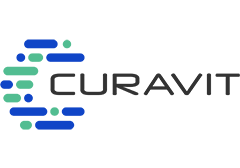October 11, 2021

As a part of our series about business leaders who are shaking things up in their industry, I had the pleasure of interviewing Dave Hanaman.
Dave Hanaman is co-founder, president and chief commercial officer of Curavit Clinical Research, a virtual contract research organization (VCRO), that designs and executes decentralized clinical trials (DCT). He is a proven entrepreneur, operator, and board director with successful, strategic exits to public companies. Founder of C3i, a Business Process Outsourcing (BPO) healthcare provider that was sold to a Fortune Global 500 company in 2018, Dave developed and led its sales, marketing, product development, and alliance strategies. Dave serves as a board member and advisor to several start-up and growth-stage companies in healthcare and technology. When not working, he enjoys spending time in the world’s mountains and oceans. He passes on his passion for the wilderness as an instructor for the National Outdoor Leadership School, where he teaches leadership to groups as diverse as the US Army, the US Forest Service, and Google. He graduated from the University of California at Berkeley and served as a deployed U.S. Navy intelligence officer.
Thank you so much for doing this with us! Before we dig in, our readers would like to get to know you a bit more. Can you tell us a bit about your “backstory”? What led you to this particular career path?
At my previous company, my co-founder, Joel Morse, and I spent 20 years at the intersection of clinical research and digital health technology, working with the world’s leading pharmaceutical companies. We became very interested in the ways that these technologies and processes could benefit patients, researchers, and healthcare organizations. I am very happy to be working with him and several other former colleagues now at Curavit, which launched in 2019.
Can you tell our readers what it is about the work you’re doing that’s disruptive?
At Curavit, we are designing and executing decentralized, or “virtual,” clinical trials, which are the application of digital technologies, wearable devices, internet-of-things, innovative trial design, and supportive regulation to increase the speed and fidelity of clinical research, while simultaneously attracting previously undeserved patient populations.
Can you share a story about the funniest mistake you made when you were first starting? Can you tell us what lesson you learned from that?
While not exactly a “funny” story, I have one that was completely unexpected. We announced Curavit at a major clinical research conference in January of 2020, when the industry was breathlessly predicting that 10% of all trials would be “virtual” in ten years. No one foresaw the impact of the pandemic and the unprecedented forced adoption of decentralized trials within months. We found ourselves suddenly accelerating toward our goals with massive tailwinds, but also buffeted by lots of noise and turbulence from the hype. We again learned the lesson that “the first casualty of battle is the plan,” and that you have to stay committed to the outcome while adapting to the things you can’t control.
We all need a little help along the journey. Who have been some of your mentors? Can you share a story about how they made an impact?
I learned so much from the men and women I served with in the Navy. From my Marine drill instructor, to the commanding officers I worked for, to my squadron mates and colleagues, they continue to inspire and motivate me every day. And of course my family; I have always enjoyed the full support of my wife and sons through the good, bad, and most of all uncertain times associated with being an entrepreneur.
In today’s parlance, being disruptive is usually a positive adjective. But is disrupting always good? When do we say the converse, that a system or structure has ‘withstood the test of time’? Can you articulate to our readers when disrupting an industry is positive, and when disrupting an industry is ‘not so positive’? Can you share some examples of what you mean?
I believe that “disruption” is a neutral word and that in practice it usually results in both positive and negative outcomes, depending on one’s perspective. For decentralized clinical trials (DCT), a good example might be the impact on sites. Are DCT’s “site-less” trials? Sometimes. Does that mean that some sites are negatively impacted by DCTs? Yes. But the flip-side of that may be reducing patient burden and increasing diverse enrollment, and those are positives. Furthermore, as with most disruption, it won’t be that simple. In this example, I believe some sites will prosper by embracing DCT technologies and processes, benefiting themselves as well as patients.
Can you share 3 of the best words of advice you’ve gotten along your journey? Please give a story or example for each.
One of our sales people once said, “If you’re explaining, you’re losing!” This means your value to your customers has to be clear and compelling.
An early advisor to my first company said, “Sometimes, you gotta tell ’em the baby is ugly.” In other words, don’t be afraid to see and speak the truth.
And recently, one of our current investors (and an advisor to our company) reminded me that my ultimate job is to detach and put myself in our customers’ shoes. Our success depends on our ability to meet and exceed customer needs and expectations over the long term.
We are sure you aren’t done. How are you going to shake things up next?
Curavit is my “next” right now. We are in our formative stage and are building out our team. We have an opportunity to do a lot of great work for the next few years and help shape the future of clinical research. That’s plenty for now, so no clear plans for a “next thing” just yet!
Do you have a book, podcast, or talk that’s had a deep impact on your thinking? Can you share a story with us? Can you explain why it was so resonant with you?
I usually read fiction or philosophy every night, even if only for a few minutes. In the gym or the car, I’ll listen to podcasts and audiobooks on a broad (and non-business-specific) array of topics often touching on history, exploration, geopolitics, and leadership. Right now I’m listening to the audio book “A Hunter Gatherer’s Guide to the 21st Century,” and just finished a 9/11 retrospective podcast series on Michael Morell’s Intelligence Matters podcast. Apropos of this interview, a keynote presentation that still resonates with me was one I heard years ago by Dr. Clayton Christensen on his seminal book, “The Innovator’s Dilemma.” That talk still informs my thinking around our strategy at Curavit today.
Can you please give us your favorite “Life Lesson Quote”? Can you share how that was relevant to you in your life?
I love quotes, and keep a list of my favorites. In this context, I’ll pick Theodore Roosevelt’s famous words found in “Man in the Arena.”
“It is not the critic who counts, not the man who points out how the strong man stumbles, or where the doer of deeds could have done them better. The credit belongs to the man in the arena, whose face is marred by dust and sweat and blood, who strives valiantly…who knows the great enthusiasms, the great devotions, who spends himself in a worthy cause, who at the best knows in the end the triumph of high achievement, and who at the worst, if he fails, at least fails while daring greatly, so that his place shall never be with those cold and timid souls who have never known neither victory nor defeat.” — Teddy Roosevelt
The most rewarding aspect of being an entrepreneur for me is commitment in the face of adversity and uncertainty which TR captures so well in that speech.
You are a person of great influence. If you could inspire a movement that would bring the most amount of good to the most amount of people, what would that be? You never know what your idea can trigger.
It would simply be to encourage people who are considering a different path to take the risk of engaging in a new venture. Of course we should plan and prepare, but eventually one simply has to make a leap of faith.
How can our readers follow you online?
You can find me and the rest of the Curavit team and follow our progress at https://www.linkedin.com/company/curavit/ and https://www.linkedin.com/in/davehanaman/.
This was very inspiring. Thank you so much for joining us!











